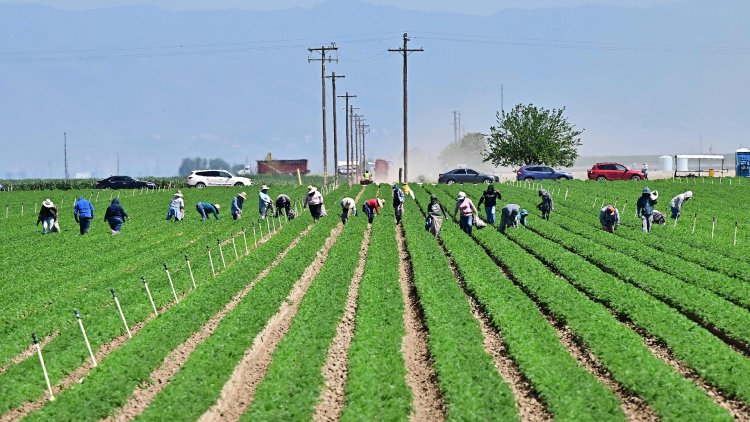'National travesty': Trump's tariffs impact U.S. farmers
U.S. farmers are encountering increasing difficulties as President Donald Trump's tariffs create turmoil in both international and domestic markets, leading to financial losses and provoking retaliatory measures from significant trading partners such as China and Canada.

By the time Trump announced his extensive tariff policy, most U.S. agricultural producers had either already planted their spring crops or had prepared their land and purchased necessary production inputs like seeds and pesticides.
Consequently, many agricultural producers who had been focusing on export crops have faced challenges in shifting to crops that could find a market within the United States, placing numerous farmers in precarious financial situations.
What they say
North Carolina beekeeper Jim Hartman, a three-time Trump voter, shared with CNN the substantial financial impact he has experienced due to tariffs and federal cuts. “I never thought I was going to lose this much money this fast," Hartman remarked. He highlighted that he had purchased a year's supply of bottles and corks from foreign sources, adding, “that would have been another five or six thousand out of my pocket." When reflecting on his electoral choice, he admitted, “Perhaps I should consider other options.” Hartman has opted to repair his 40-year-old forklift instead of buying new equipment, noting that the cost of machinery has escalated "through the roof."
Scott Metzger, a board member of the Ohio Soybean Association, expressed concern to China Media Group, saying: “We fear that the tariffs continue into the fall, even the next year." He warned, “There is a good chance that we farmers go out of businesses, you could have next generations not want to come back, not able to work out."
John Boyd Jr., founder and president of the National Black Farmers Association, described Trump's tariffs as a “national travesty” for America’s farmers in an interview with NewsNation Prime.
Numbers talk
According to the U.S. Department of Agriculture’s Agricultural Products Export Service, the total value of U.S. agricultural exports hit $176 billion in 2024. The leading agricultural products by export value included soybeans, corn, beef and beef products, nuts, and pork and pork products.
Last year, Mexico, Canada, and China became the leading markets for U.S. agricultural exports, collectively representing nearly half of total exports. Canada and Mexico accounted for one-third of all U.S. agricultural and related exports and provided 40 percent of all agricultural imports. China ranked as the third largest U.S. export destination, comprising 14 percent of the total, with Japan following at 7 percent.
U.S. agricultural exporters are now facing repercussions from Trump's tariffs, as countries like China and Canada have implemented retaliatory tariffs.
Bianca Kaprielian, co-CEO of Creekside Organics in Reedley, reported a significant reduction in orders from Canada following its establishment of a 25 percent retaliatory tariff on U.S. goods. Her family farms citrus on approximately 200 hectares and typically exports oranges and lemons to Canada and other markets. Kaprielian stated, “We have seen those orders go down or dry up,” and she expressed concern that losing export markets could result in domestic oversupply, further driving down prices.
Debra A Smith for TROIB News
Find more stories on Business, Economy and Finance in TROIB business












